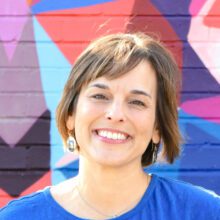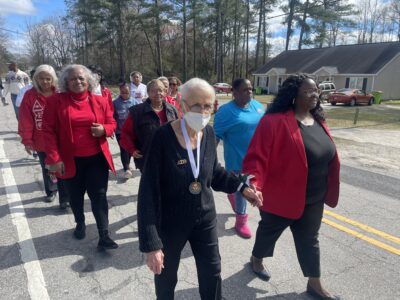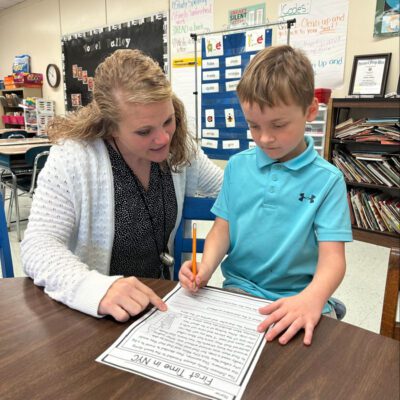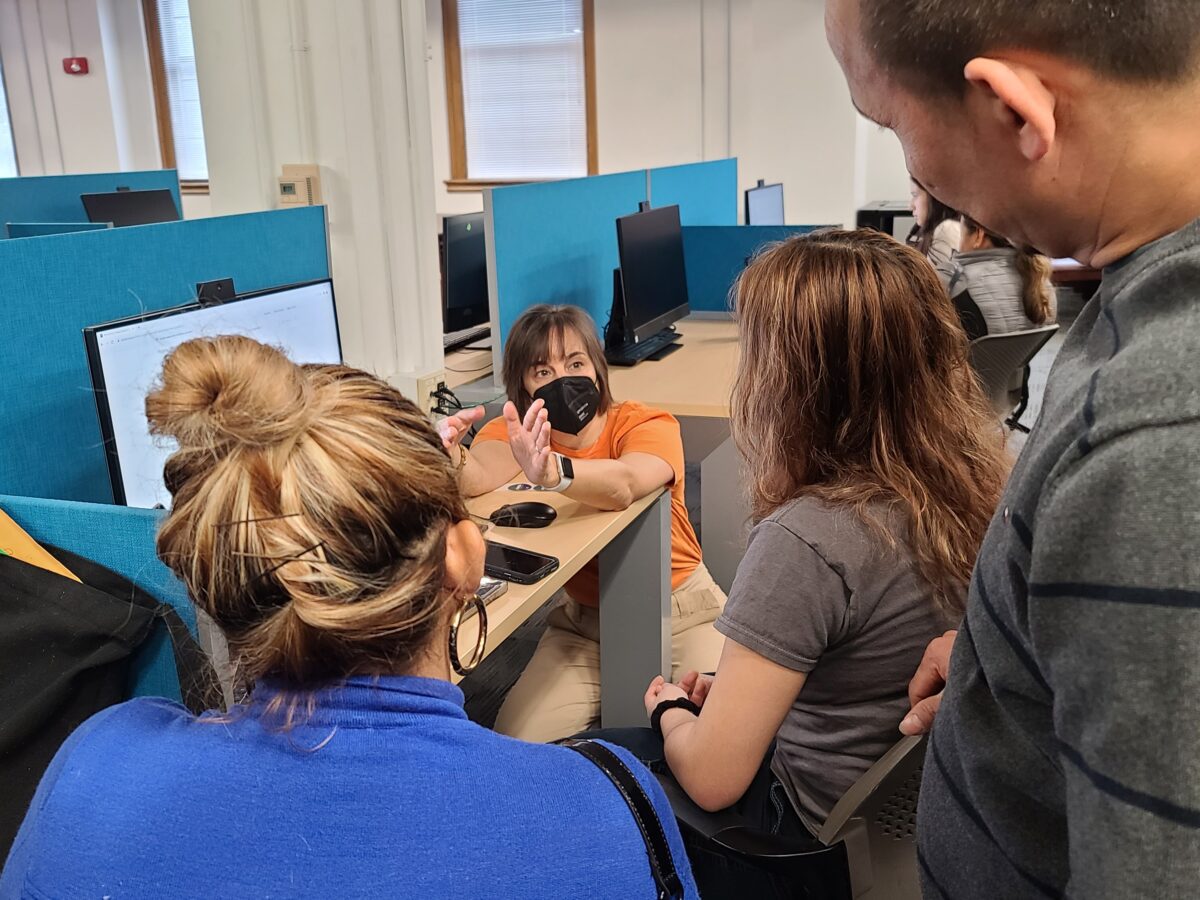

Each year, counselors and advisers approach the college application process with renewed optimism as we prepare to guide our students through an exciting — and yes, stressful — time. This year, we were even looking forward to the Free Application for Federal Student Aid (FAFSA); this year’s revamped form, known as the Better FAFSA, would streamline this historically complicated process.
However, my optimism waned on a chilly January morning when Eric and his parents arrived at North Carolina Central University to complete his FAFSA on our state’s annual FAFSA Day. Eric is a U.S. citizen who receives federal financial aid as a first-year college student. His parents both work and file taxes with their Individual Taxpayer Identification Numbers (ITIN). This should be straightforward.
After successfully completing Eric’s portion of the form, we immediately encountered a roadblock on his parents’ section due to a technical issue that affects parents without Social Security numbers (SSNs). With my colleague translating, I told Eric’s family this frustrating news.
“You didn’t do anything wrong, but until this glitch is fixed, he can’t submit his FAFSA.”
At that point, Federal Student Aid had not provided any estimates for when the issue would be resolved. This was the fourth family I helped that day, and not one was able to submit their FAFSA.
Eric, like thousands of college students in North Carolina, is part of a mixed-status family: a family that includes people with different citizenship or immigration statuses. The Better FAFSA aimed to reduce barriers for all students, including those in mixed-status families. But by Jan. 4, just five days after the Better FAFSA launched, the 2024-2025 FAFSA Issue Alerts cited the roadblock experienced by parents without SSNs: they were not able to start or contribute to their student’s FAFSA. Instead, they were caught in a dead-end loop.
This is affecting students like Eric who are already enrolled in college, as well as students hoping to enroll in the fall. According to NCAN’s FAFSA Tracker, just 29% of North Carolina’s Class of 2024 had submitted their FAFSA by March 1, 2024, a decrease of 30% from last year. At least 20 school districts have experienced declines of over 45%. While there are other issues preventing FAFSA completion, the technical barriers for mixed-status families are many.
So, it was with anticipated relief that I opened an email announcing a “FAFSA Workaround, Fix for Students from Mixed-Status Families” on Feb. 21. It outlined a nine-step workaround for contributors without SSNs, and a promise by Federal Student Aid to resolve the issue in the first half of March, more than two months since the issue was first reported. As college access professionals read the details of the workaround, we found exceptions and complications rather than relief.
Students could use the workaround, but their FAFSA will be incomplete and must be corrected later. Students shouldn’t use the workaround unless they have a critical financial aid or scholarship deadline. Students shouldn’t use the workaround if they have already mailed a paper FAFSA in order to meet a deadline.
Frustrated, yet? Our students were forced to choose between two broken options: a workaround that is a partial fix, or submitting the FAFSA after the priority deadlines.
On March 12, 10 weeks after identifying the roadblock, Federal Student Aid implemented and verified two technical fixes to resolve access for impacted families. However, this fix uncovered related issues that slow down the process of submitting the FAFSA successfully. It’s still too soon to tell if the implementation of the fixes will go smoothly.
Although the Department of Education’s stated priority remains to “ensure all students can access the maximum financial aid possible to help them pursue their higher education goals,” these roadblocks have condensed the critical stages between acceptance and enrollment, forcing financial aid offices to scramble and families to make decisions with limited time.
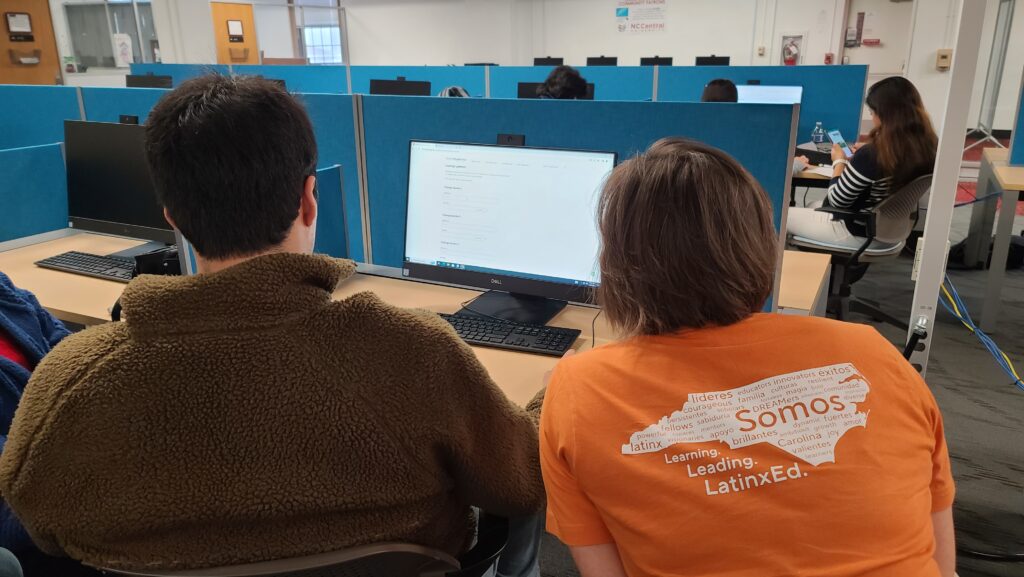

I think about Eric and his family, who rescheduled work to attend FAFSA Day. I think about the students who applied to a dozen colleges, desperately trying to locate announcements about updated financial aid deadlines. I think about the students who were derailed in early January when they mistakenly believed they weren’t eligible to complete the FAFSA as they encountered these glitches. And I think of the counselors who hosted FAFSA nights prior to the UNC System priority deadline of March 1, hoping to maximize their students’ opportunities, only to be stuck offering the same reassurance we offered in January and a promise to help whenever things are fixed.
Students — whose aspirations remained intact despite the losses of the pandemic — have worked to become college-ready. Many have maintained these aspirations not only for themselves but also for the dreams of their parents and caregivers. With mixed-status families, those dreams come with the physical and emotional toll of living without many social safety nets, without protections, and with the fear and reality of family separation. Yet these students continue to show resilience and hope.
When will we stop asking our children to be resilient, and demand instead that the system provide equitable access to a benefit that is rightfully theirs to receive? We will advocate for a FAFSA that works equally well for all eligible students, regardless of their parents’ immigration status. For now, counselors and advisers across North Carolina will continue encouraging our students and providing the necessary support to navigate the rocky FAFSA rollout. We will continue meeting them where they are — whether through FAFSA Days or College y Consejos’ bilingual text helpline — and encourage folks like you to join our efforts.
Our state’s Erics are counting on us.
LatinxEd’s College y Consejos initiative hosts a bilingual text helpline for Latinx students and families in NC who need support with college and financial aid applications. The text helpline number is 919-283-9192.
